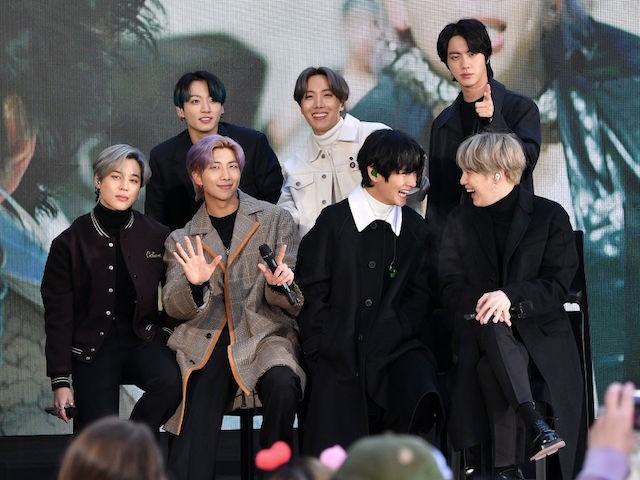The National Assembly of South Korea passed a law Tuesday that allows pop stars to defer mandatory military service up to age 30 if the nation’s culture minister deems them “significant contributors to the elevation of national reputation,” according to the news agency Yonhap.
Currently, all able-bodied men between the ages of 18 and 28 must serve nearly two years in the military; men must enter the service by their 28th birthday. The law contains exceptions for athletes and classical artists, but South Korean politicians had been previously hesitant to expand that exemption to musicians who perform popular music because the genre was widely considered not to contribute in a meaningful way to the nation’s culture.
The law has caused the demise of many careers in Korean pop music, or K-pop; most boy groups disband or go on hiatus, never to return, once their oldest member is forced into the military.
The National Assembly passed the law the same week that the oldest member of the band Bangtan Sonyeondan (BTS), arguably the most popular musical act in the world, turns 28, allowing the group to continue performing. Some have dubbed the reform the “BTS law” in honor of the band.
South Korea is technically still at war with North Korea since the Korean War began in 1950, though active hostilities ceased in 1953.
According to Yonhap, the bill passed Tuesday reforms the Military Service Act not to allow full cancellation of military service, but to push the age range back to age 30 in cases where the men in question are considered to be performing extraordinary duties in helping South Korea’s public image.
“Decorated pop stars could put off their enlistments until the age of 30 upon the culture minister’s recommendations as significant contributors to the elevation of national reputation,” the outlet noted. Billboard noted that those seeking a deferment would require concrete evidence of their extraordinary contributions to culture, such as medals from the South Korean government to honor their work.
“All seven members of BTS qualify after being awarded the country’s Hwagwan orders of cultural merit from the government in 2018 during the Korean Popular Culture & Arts Awards,” Billboard reported.
BTS member Kim Seok-jin, known by the mononym Jin, turns 28 on Friday, which normally would have resulted in an abrupt pause of the band’s career amid a record-breaking run of success in the past six months.
On Monday, the group’s song, “Life Goes On,” debuted at number one on the Billboard Hot 100 chart, the first time a song in Korean has done so in the history of that institution. The song’s video alludes to the loneliness of the Chinese coronavirus lockdowns, depicting the group wearing masks and staying home. It is the second BTS song, after their English-language single “Dynamite,” to debut at the top of the American music chart.
“BTS is now the first and only group in history with multiple No. 1 debuts on the Hot 100,” according to Billboard, including American acts.
Last week, BTS became the first South Korean pop music act to be nominated for a Grammy Award. They received a nomination in the best pop duo/group category.
Leftist South Korean President Moon Jae-in appeared to hint at further support for the Korean pop industry in remarks on Wednesday, in which he emphasized the use of “soft power” to enhance South Korea’s global influence.
“Recently, our (country’s) status has been greatly enhanced not just economically but also in terms of soft power including virus control, health and medical care, democracy, public perception, and culture awareness,” Moon reportedly said. “It will be of great help to both South Korea and the international community if (we) cooperate with other nations by utilizing soft power in the cultural field that’s represented by the Korean Wave.”
South Korean lawmakers first began discussing a deferment for pop stars after the Communist Party of China began attacking BTS for comments thanking the U.S. military for its support of South Korea during the Korean war. The band made the remarks during a statement thanking the Korea Society for honoring them with the James A. Van Fleet Award, which marks superlative contributions to U.S.-Korean relations.
Chinese state media attacked BTS for thanking South Korea’s ally America without thanking China, which fought against South Korea in the war. The campaign to malign BTS prompted nationwide outrage in South Korea, where the group’s highly enthusiastic fans, who refer to themselves as the “BTS army,” vowed a backlash against the regime.
Under the previous military service laws, K-pop groups struggled to maintain relevance once one if their members turned 28, even if they had spent a decade at the top of Korean music charts. Among the most spectacular declines was that of BigBang, Korea’s most popular boy band prior to BTS. Its most popular members, “G-Dragon” and “T.O.P.,” entered military service in 2017 and 2018, forcing the band into a premature hiatus. At the time, the band had just begun attracting American attention and G-Dragon had been featured in Vogue as a fashion icon.
During BigBang’s hiatus, one of its members, Seungri, was implicated in a human trafficking, gambling, and prostitution scandal, through his partial ownership of a Seoul nightclub known as Burning Sun. The Burning Sun scandal also took down the CEO at the time of the band’s record label, YG Entertainment.
While most of its members have completed their military service and Seungri formally retired from the music industry, BigBang have yet to release any new music.

COMMENTS
Please let us know if you're having issues with commenting.